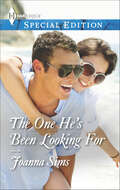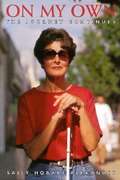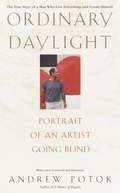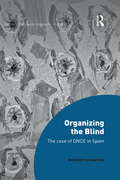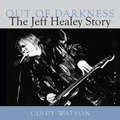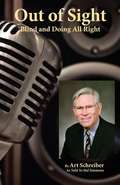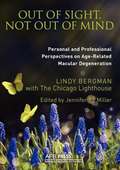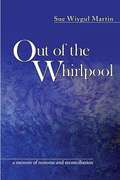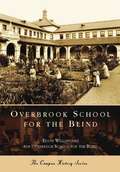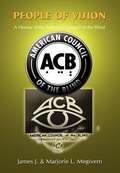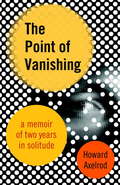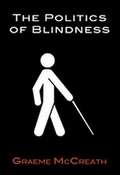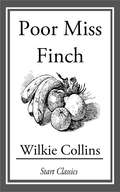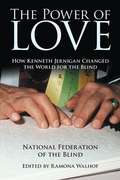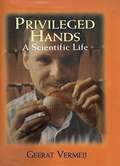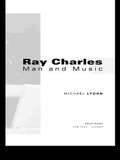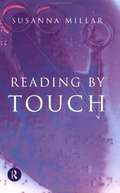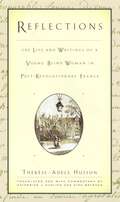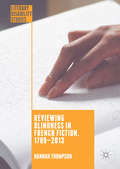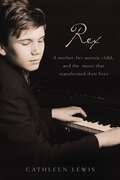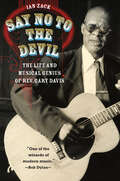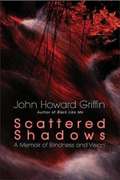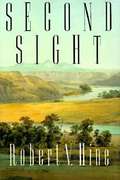Special Collections
Blindness and Visual Impairment Special Collection
Description: A collection featuring biographies, memoirs, fiction and non-fiction by and about members of the blind community. #disability
- Table View
- List View
Old Dogs and New Tricks
by Kenneth JerniganThe tenth book in the Kernel Book Series contains these vignettes: Editor's Introduction Old Dogs and New Tricks The Sliding Board Tending to My Knitting Roller Coasters Serving Communion and Loving Elizabeth. Other books in this series are available from Bookshare.
The One He's Been Looking For
by Joanna SimsHe'd finally discovered his muse just as he was losing his sight. Joanna Sims tells the romantic story of a closed-off photographer who opens up for the love he's always needed in her latest book, The One He's Been Looking For! World-famous photographer Ian Sterling had been searching for the perfect woman. And when he finally spotted Jordan Brand he simply had to have her. Her photos would mark his final work. His life as he knew it was slipping through his fingers. The man who bestowed beauty on the world was losing his sight. For rebellious artist Jordan, becoming someone's inspiration should have been laughable. Yet being with Ian made her ridiculously happy. Knowing of the difficult road he was traveling made her love him even more. But Ian refused to pass his disorder along to childrenleaving Jordan to choose between the man who held her heart and the family she'd always wanted .
One of the Lucky Ones
by Lucy Ching
Many people might think me unlucky because I am blind, writes Lucy Ching in this poignant autobiography, but I prefer to think of myself as one of the lucky ones.
Indeed, Lucy Ching's achievements despite total blindness would be outstanding in any time and place- especially so in China of the 1930s, where the blind were treated as outcasts and blind children were sometimes sold into slavery by their own families. Lucy Ching was fortunate enough to be kept at home with her parents, but as she reveals in this remarkable memoir, her triumph over her disability was due to her own fierce determination... and to a very special friendship. Under the devoted care of her amah, an illiterate servant woman who was guided only by common sense, intuition and affection for the child, Lucy Ching learned to live in a sighted world, vowing to have the independence and fulfillment of a profession.
As a child, Lucy taught herself to read and write in braille and was allowed to attend school with sighted children. And, quite against the beliefs of her family, she converted to Christianity and made a solemn promise to God that her lifework would be to help the blind. Lucy's unflagging dedication was rewarded with a scholarship to the Perkins School for the Blind in Boston, where she received the special training which has enabled her to carry out her promise.
My life could have been spent in enforced idleness and isolation, observes Lucy Ching, cut off from other people and their lives and problems. But I was luckier than that. God had other plans for me.
Like Helen Keller, she found herself, her work and her God through affliction. Today Lucy Ching is a social worker in Hong Kong, where she works with the blind as well as other handicapped people.
On My Own
by Sally Hobart AlexanderThe second part of the author's autobiography, of which the first part, Taking Hold, was published in 1994. The author describes the difficulties and accomplishments she experiences as she adjusts to living independently after losing her sight.
Ordinary Daylight
by Andrew PotokAndrew Potok is an intense, vigorous, sensual man--and a gifted painter. Then, passing forty, he rapidly begins to go blind from an inherited eye disease, retinitis pigmentosa. Depressed and angry, he rages at the losses that are eradicating his life as an artist, his sources of pleasure, his competence as a man. He hates himself for becoming blind. But as he will ultimately discover, and as this remarkable memoir recounts, it is not the end of the world. It is the beginning.
his the story of Potok's remarkable odyssey out of despair. He attempts to come to terms with his condition: learning skills for the newly blind, dealing with freakish encounters with the medical establishment, going to London for a promised cure through a bizarre and painful "therapy" of bee stings. He wrestles with the anguish of knowing that his daughter has inherited the same disease that is stealing his own eyesight. And then, as he edges ever closer to complete blindness, there comes the day when he recognizes that the exhilaration he once found in the mix of paint and canvas, hand and eye, he has begun to find in words.
By turns fierce, blunt, sexy, and uproariously funny, Andrew Potok's memoir of his journey is as shatteringly frank as it is triumphant.
Organizing the Blind
by Roberto GarvíaThis book is a case study which narrates the history of the National Organization of the Spanish Blind (ONCE), established in 1937 during the Spanish Civil War. Contrary to other affluent countries where most blind people live on welfare benefits, the Spanish blind enjoy full employment. Furthermore, the average income of the Spanish blind is higher than that of the sighted. Why is this so? Why the blind, and not the deaf mute, or any other group of disabled people? This book shows that ONCE answers these questions.
The book explains ONCE'S origins, the shifting strategies that the organization has pursued to adapt to an ever-changing environment, its original goals and the way they have mutated and been interpreted, its conflicting relationship with an authoritarian regime, its struggle to find its place in a democratic regime, and its relations with other groups of disabled people. A historical narrative, the book lies at the intersection between disability and organization studies, history and sociology.
It will be of interest to all scholars of disability studies, the sociology of work, the history of medicine and contemporary Spanish history.
Out of Darkness
by Cindy WatsonShort-listed for the 2011 Golden Oak Award
From the moment three-year-old Jeff Healey first laid a guitar across his lap in what was to become his signature style, it was clear he was no ordinary kid.
Losing both eyes to retinoblastoma, a rare form of cancer, opened a door to another world for Jeff, a newly adopted infant.
Out of darkness he created music, becoming one of the most influential blues-rock and jazz performers of our time, beginning with his first hit album, See the Light.
In this up-close and personal account, loaded with never-before-seen photographs, memorabilia, and intimate recollections of family, friends, and fellow musicians, we discover this unique music icon’s dynamic career, which saw him collaborate with everyone from George Harrison and Eric Clapton to B.B. King and Stevie Ray Vaughan.
From Jeff’s lonely start one snowy night at St. Joseph’s Hospital in Toronto to his untimely end in the same building, we come away with a potent message of empowerment and a renewed sense of hope.
Out Of Sight
by Art Schreiber and Hal SimmonsA high level radio news broadcast executive, Art Schreiber suddenly lost his eyesight. At the top of his career as a radio station general manager, Art awoke one morning at a resort near Santa Fe, New Mexico, unable to see. His world was in complete darkness. After facing total despair, Art plotted his return to the top while learning to live life in a new way in a new world. Art's refusal to fold his tent when his eyesight failed and his struggle to live life to the fullest will inspire any person who reads his story. Art's greatest reward in life is encouraging and motivating others who face similar challenges.
Out of Sight, Not Out of Mind
by Lindy BergmanOut of Sight, Not Out of Mind presents a personal account of living successfully with age-related macular degeneration (AMD), combined with powerful new information on effective service delivery. Ninety-three-year old Lindy Bergman illustrates the ways in which life with low vision can be lived with independence, dignity, and personal satisfaction. Also included are highly informative chapters, written by the world-renowned experts from The Chicago Lighthouse for People Who are Blind or Visually Impaired, encompassing the latest information about the causes and treatment of AMD; a concise, informative overviews of the effects of aging on vision, the emotional and psychological components of vision loss and the integration of the individual's psychological recovery into low vision service delivery; and a cutting-edge model of rehabilitation that meets the challenges of service provision today. Foreword by Jonathan Safran Foer, award-winning author of Everything Is Illuminated and Extremely Loud and Incredibly Close.
Out of the Whirlpool
by Sue Wiygul MartinSue Wiygul Martin has written a deeply honest and moving account of the rebuilding of her life after a desperate, impetuous act in her youth ended in traumatic blindness. Since that day, she has greeted the world with her trademark determination and humor, accepting the challenges placed before her as she adjusted to being blind.
She takes the reader through the process of blind rehabilitation in such a way that you feel you, too, are going through the process of learning new skills and making the emotional adjustment right along with her. You come to understand what it takes to rebuild a life after a traumatic episode that upends your world of dreams and expectations.
Now, after more than thirty years of an extraordinary recovery and reconciliation with the past, Martin is ready to share the simple truth of her journey. Advance readers have called her book a “Must read” for anyone in the field of blind rehab or anyone going through the adjustment to new blindness or other traumatic events in their lives. Martin’s truth is a universal truth, one which is so easy to lose sight of—we are all the same, yet so beautifully different. So, fasten your seat belts. Sue Martin would like to take you on a wild ride through this life of hers. Get ready for some joy, sorrow, beauty, a few cosmic slaps of enlightenment, and a thousand other thoughts and feelings along the way. Filled with adventure, with joy, and triumph, with adversity and adjustment to change, Out of the Whirlpool is a story about living life to the fullest. While she may have faced extraordinary challenges, in the end, she will tell you her story is everyone’s story.
Overbrook School for the Blind (The Campus History Series)
by Edith WilloughbySince 1832, Overbrook School for the Blind has been a leader in providing educational programs to children and young people who are blind and visually impaired. Julius Friedlander, the schools founder, and other early leaders worked hard to inform people about the educational needs of the children. Their efforts resulted in providing reading material for the blind and Overbrook's production of the first embossed book in America, the Gospel of Mark, and the publication of the first magazine for the blind, Lux en Tenebrae. Offering students access to all educational opportunities continues to be the schools main goal, and in the early 1990s, Overbrook pioneered the development of a school wide technology initiative that provided students with the ability to access the curriculum, communicate, and be successful in employment. Through rare photographs and documents, Overbrook School for the Blind offers a glimpse at the schools role in reaching out to people who are blind and it showcases how Overbrook has helped thousands of students to achieve independence, self-confidence, and the skills to experience active and fulfilling lives.
People of Vision
by James J. Megivern and Marjorie L. MegivernPeople of Vision: A History of the American Council of the Blind. The history of the treatment of individuals who are blind by other members of society is fraught with misconceptions, prejudices, myths, and stereotypes.
There are those who believe that blind people are OK as long as they stay "in their place," removed from society. Others feel that blind individuals are helpless and hopeless, deserving only of charity and pity. Still others have the notion that all blind people can be taught certain skills which make them unusually suited to a few specific jobs. The idea that people who are blind are first of all people, capable of and deserving the opportunity to be fully assimilated, fully participating members of society as equals has gained some recognition in certain parts of this country but still has a long way to go.
The Point of Vanishing
by Howard AxelrodInto the Wild meets Portrait of the Artist as a Young Man--a lyrical memoir of a life changed in an instant and of the perilous beauty of searching for identity in solitude On a clear May afternoon at the end of his junior year at Harvard, Howard Axelrod played a pick-up game of basketball. In a skirmish for a loose ball, a boy's finger hooked behind Axelrod's eyeball and left him permanently blinded in his right eye. A week later, he returned to the same dorm room, but to a different world. A world where nothing looked solid, where the distance between how people saw him and how he saw had widened into a gulf. Desperate for a sense of orientation he could trust, he retreated to a jerry-rigged house in the Vermont woods, where he lived without a computer or television, and largely without human contact, for two years. He needed to find, away from society's pressures and rush, a sense of meaning that couldn't be changed in an instant.From the Trade Paperback edition.ions of perception, time, identity, and meaning.From the Trade Paperback edition.
The Politics of Blindness
by Graeme MccreathThis book provides a rallying cry so that the voice of users of services can be heard, and both the provision of services can be tailored by and shaped to their needs.
The anti-discrimination clause, which I was proud to contribute to in the extension of the Disability Discrimination Act, the creation of the Disability Rights Commission (now part of the Equality and Human Flights Commission) and the Office of Disability inside UK government, has enabled individual and collective experience of inequality and discrimination to be tackled head on.
Poor Miss Finch
by Wilkie CollinsWilkie Collins's intriguing story about a blind girl, Lucilla Finch, and the identical twins who both fall in love with her, has the exciting complications of his better-known novels but it also overturns conventional expectations. Using a background of myth and fairy-tale to expand the boundaries of nineteenth-century realist fiction, Collins gives one of the best accounts in fiction of blindness and its implications.
The Power of Love
by National Federation of the BlindThe Power of Love: How Kenneth Jernigan Changed the World for the Blind shares the voices of a collection of individuals whose writings reveal the deep truth that serves as the foundation for the life and work of Kenneth Jernigan.
His life and their writings together speak of how Thomas Jefferson's self-evident truths imply that equality extends to embrace blind people just as surely as this country has come to understand equality's inclusion of all people regardless of the color of their skin.
Ramona Walhof, editor of The Power of Love and longtime friend of Kenneth Jernigan, draws together the distinctive voices of individuals who knew Kenneth Jernigan and whose lives he touched through his work with the National Federation of the Blind. Each of the reflections begins with a brief biographical sketch that introduces the chapter's author and ties his or her life to Kenneth Jernigan and his work.
The book concludes with a chapter, "Blindness: The Federation at Fifty," a retrospective written by Kenneth Jernigan himself in the last decade of his life. The Power of Love: How Kenneth Jernigan Changed the World for the Blind gathers a polyphonic chorus of voices that tell how the power of love, coursing through the life of Kenneth Jernigan, changed the world for the blind and, in so doing, changed the world for everyone.
Ray Charles
by Michael LydonAn extremely detailed account of Ray Charles' personal life, from his childhood to his death and funeral, and of his musical life, including every concert, gig, recording etc.
Reading by Touch
by Susanna MillarThe perceptual, linguistic and cognitive processes involved in sighted reading have been widely studied, but the use of touch raises new issues. Drawing on her research with novice and fluent braille readers, Susanna Millar examines how people initially process braille and how skill with sounds, words, meaning and spelling patterns influence processing. The main focus is on braille, but findings on the "Moon" script, vibrotactile devices, maps and icons are also considered in the context of their practical implications and access to computer technology.
Reflections
by Therese-Adèle HussonIn the 1820s, several years before Braille was invented, Therese-Adele Husson, a young blind woman from provincial France, wrote an audacious manifesto about her life, French society, and her hopes for the future. Through extensive research and scholarly detective work, authors Catherine Kudlick and Zina Weygand have rescued this intriguing woman and the remarkable story of her life and tragic death from obscurity, giving readers a rare look into a world recorded by an unlikely historical figure. Reflections is one of the earliest recorded manifestations of group solidarity among people with the same disability, advocating self-sufficiency and independence on the part of blind people, encouraging education for all blind children, and exploring gender roles for both men and women. Resolutely defying the sense of "otherness" which pervades discourse about the disabled, Husson instead convinces us that that blindness offers a fresh and important perspective on both history and ourselves.In rescuing this important historical account and recreating the life of an obscure but potent figure, Weygand and Kudlick have awakened a perspective that transcends time and which, ultimately, remaps our inherent ideas of physical sensibility.
Reviewing Blindness in French Fiction, 1789–2013
by Hannah ThompsonThis book argues that the most interesting depictions of blindness in French fiction are those which call into question and ultimately undermine the prevailing myths and stereotypes of blindness which dominate Western thought. Rather than seeing blindness as an affliction, a tragedy or even a fate worse than death, the authors examined in this study celebrate blindness for its own sake. For them it is a powerful artistic and creative force which offers new and surprising ways of describing, and relating to, reality. Canonical and lesser-known novels from a range of genres, including the roman noir, science fiction, auto-fiction and realism are analyzed in detail to show how the presence of blind characters invites the reader to abandon his or her traditional reliance on the sense of sight and engage with the world in sensual, and hitherto unexpected, ways. This book challenges everything we thought we knew about blindness and invites us to revel in the pleasures and perils of reading blind.
Rex
by Cathleen LewisThe inspiring story of Rex, a boy who is not only blind and autistic, but who also happens to be a musical savant.
How can an 11-year old boy hear a Mozart fantasy for the first time and play it back note-for-note perfectly-but struggle to navigate the familiar surroundings of his own home?
Cathleen Lewis says her son Rex's laugh of total abandon is the single most joyous sound anyone could hear, but his tortured aversion to touch and sound breaks her heart and makes her wonder what God could have had in mind.
In this book she shares the mystery of Rex and the highs, lows, hopes, dreams, joy, sorrows, and faith she has journeyed through with him.
Say No to the Devil
by Ian ZackWho was the greatest of all American guitarists?
You probably didn't name Gary Davis, but many of his musical contemporaries considered him without peer. Bob Dylan called Davis "one of the wizards of modern music. " Bob Weir of the Grateful Dead--who took lessons with Davis--claimed his musical ability "transcended any common notion of a bluesman. " And the folklorist Alan Lomax called him "one of the really great geniuses of American instrumental music. " But you won't find Davis alongside blues legends Robert Johnson and Muddy Waters in the Rock and Roll Hall of Fame.
Despite almost universal renown among his contemporaries, Davis lives today not so much in his own work but through covers of his songs by Dylan, Jackson Browne, and many others, as well as in the untold number of students whose lives he influenced.
The first biography of Davis, Say No to the Devil restores "the Rev's" remarkable story. Drawing on extensive research and interviews with many of Davis's former students, Ian Zack takes readers through Davis's difficult beginning as the blind son of sharecroppers in the Jim Crow South to his decision to become an ordained Baptist minister and his move to New York in the early 1940s, where he scraped out a living singing and preaching on street corners and in storefront churches in Harlem.
There, he gained entry into a circle of musicians that included, among many others, Lead Belly, Woody Guthrie, and Dave Van Ronk. But in spite of his tremendous musical achievements, Davis never gained broad recognition from an American public that wasn't sure what to make of his trademark blend of gospel, ragtime, street preaching, and the blues. His personal life was also fraught, troubled by struggles with alcohol, women, and deteriorating health.
Zack chronicles this remarkable figure in American music, helping us to understand how he taught and influenced a generation of musicians.
Scattered Shadows
by John Howard GriffinThis extraordinary chronicle from the author of "Black Like Me" about his loss of sight is a powerful testament to the human spirit. Edited and introduced by Robert Bonazzi
Second Sight
by Robert V. HineThe author talks about when he goes blind, the things that happen to him, and when he regains his sight

